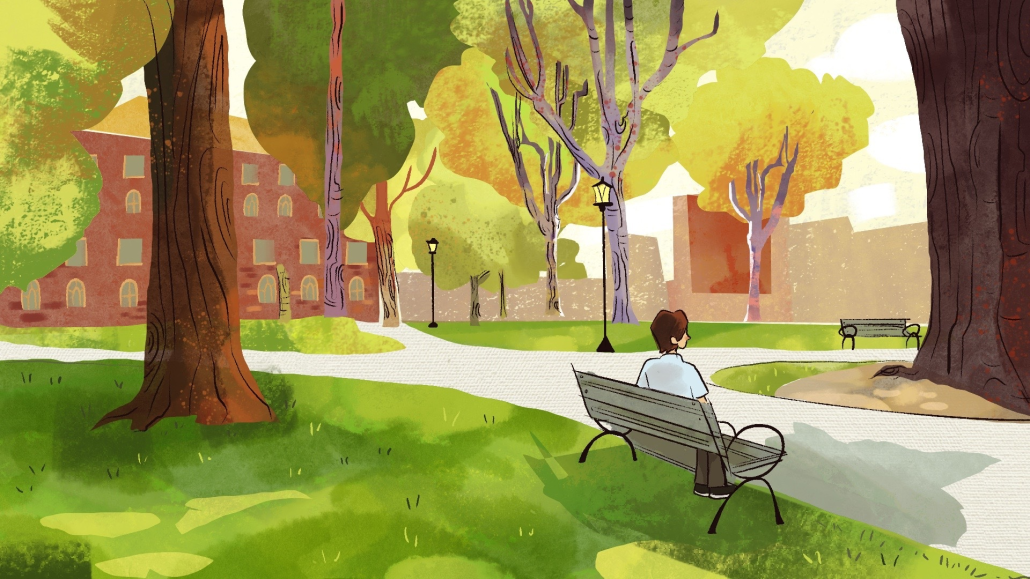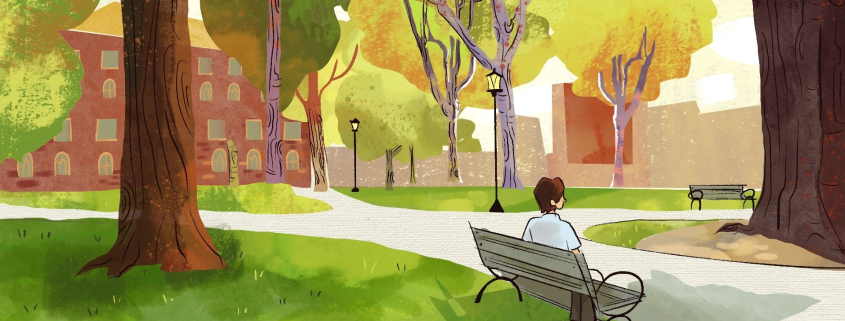Editor’s Epilogue: Learn to embrace failure

Last year, as squirrels chittered above me on branches far older than the pedestrians they shaded, a tear blotted my notebook, smearing a hastily scribbled battle plan. I was at once the aggressor and target in this war, a Trojan horse carpenter designing my own city’s ambush. Yet in that moment, collapsing on a bench in Founders Park, I failed to conquer even ink and paper. I had never felt so small.
I got a D on my organic chemistry test. The score couldn’t have been less surprising, nor the melodrama more bitter; I plainly did not study, finding it more arduous than the talking, eating and sleeping that I convinced myself was just as valuable.
Still, that morning in the park, the leaves parted to reveal something deathly serious in the bleaching sunrays. The delusion that everything I wanted — or, indeed, convinced myself I needed — could be molded from nothing, with not but a high-held head and made-up mind, was stripped away. The moment melted the unrealistic tenets to which I had fixed my optimism: that my very desire for things — passing grades, prideful ancestors and a bajillion-dollar graduate salary — was mana sufficient to conjure those things.
To that day, I had been Don Quixote, floating through life with blind irreverence of the rules that required others to exchange effort for achievement. But sitting there, fumbling to wipe bleeding streaks back into form, the fourth wall fell. My failures were finally legible: acts of service done with secondary motives, accomplishments whose wordy LinkedIn posts betrayed their emptiness, success found by lucky accident.
The taste of that morning lingered thereafter, putrid but private to my senses like a rotting cavity. I chewed on it — painful, the rotting cavity it continued to be — chipping away at its cordoned-off growth in the basement of my mind, until I came to a realization. Failure wasn’t my problem; as Joan Didion wrote in 1961 in her titular essay on the topic, “It was a matter of misplaced self-respect.”
Self-respect, that notorious pillar toward which mentors, philosophers and various Disney properties have urged my generation to aspire, materialized for me that day.
My problem with self-respect, of course, was that it can’t be deluded. The pouted lips and doe eyes that earn sympathy for toddlers lose their magic when done in the mirror, as does the hyperbole that students may employ to gain entrance to top colleges. In fear of reading too Machiavellian, I’ve found it woefully true that the respect of others can be laundered with counterfeit charm. One can always engineer the admiration we too often desire, but, as the only witness to such scale-tipping, can never persuade themself to feel deserving.
But inside the driver’s seat of our minds, we are devoid of masks and sly language. In the war against ourselves, there is no room for such trickery. The first law of thermodynamics reigns; there can be no fabrication of self-respect.
“How, then, are we supposed to go on?” I looked up and asked a squirrel. “Is self-respect one of those impossible goals that the mind devoid of predators creates to occupy its time?” After all, as humans commonly do, it is inevitable to fail. It failed, as squirrels commonly do, to respond.
The first 542 words have been a real bummer, so allow me to be brief: Self-respect is not a state to be reached. So too is it not an antidote to the dirt-in-your-mouth taste of failure. Rather, the pursuit of self-respect, the very cognizance of it, enables one to escape the dread that comes from chasing that which they’ve sold themselves on desiring.
I could no longer tell myself I was trying my hardest, for I knew it to be untrue. And yet, in knowing that, I was challenged to cease the tricks that had gotten me to where I was. Those wins which came by mistake or for the wrong reasons lost their luster, but became motivation to do better. Conversely, instances of earnest defeat — blundered attempts to submit late assignments, severance from a job I simply couldn’t do, persistently airballing under Lyon Center’s omniscient incandescents — lost their edge. In fact, as the water of Marah, what was once unbearably bitter became nourishing.
Self-respect, I found, was not a fruit grown by never failing, but by acting with discipline and honesty, such that every success was truly worthy.
As the end of the school year approaches, I find many peers similarly caught in the sun, looking back at the peaks and valleys of their lives and surveying the trails ahead. I anticipate readers are doing the same — it’s been sunny in SoCal, after all. So, take a minute in the light. Evaluate what really matters to you, and pursue it in earnest. For, even if you fail, you’ll find peace with your shrewdest ally: yourself.
“Editors’ Epilogue” is a rotating column featuring a new Daily Trojan editor in each installment and their reflections on personal experiences pertinent to college life. Sage Wheeler is the editor-in-chief of the Daily Trojan.

